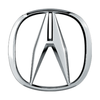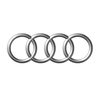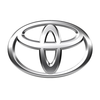5 reasons why your car stalls
Imagine yourself driving along and all of a sudden, your car starts choking, losing power and stopping. You don‘t understand what is the problem because only moments ago it worked just fine and nothing suggested that it could stop. However, you are stranded by the side of the road and unable to continue. This is a typical car stalling scenario and we will tell you why it happened and how you can avoid it. Here are top 5 reasons why your car is stalling.
Dead Alternator
The alternator is a small mechanical component bolted onto the engine and connected via timing belt. It basically transforms kinetic energy produced by the engine‘s turning and turns it into electrical energy powering all electrical systems and feeding the car‘s battery. Contrary to popular belief, car battery doesn’t provide the electric power all the time, just for starts and while the car is stationary. During driving, the alternator is responsible for lights, dashboard, and power windows but before anything else, for powering the spark plugs. If the alternator dies and doesn’t provide electricity, car battery will power electrical systems and spark plugs for some time, but eventually it will die as well. Just before the car stalls, you will experience flickering headlights, dashboard and loss of power. Those are clear signs that you are losing electricity and that you should safely stop by the side of the road before your car dies totally.
Clogged Filters
Despite being quite cheap and expendable car parts, air and fuel filters are very important for proper functioning of the engine, power delivery and smooth running. If your filters are old or dirty, they will stop air and fuel from entering the engine, causing it to stall. Bad filters will basically choke the engine forbidding it to get enough air or fuel it needs. Before it stalls, the car will experience loss of power, bumpy idle or slow acceleration. In most cases it will limp home but if the filters are extremely dirty, it will totally stop. The key for preventing this scenario is to change your filters regularly especially if you drive through dust or mud. Extreme road conditions will cause filters to get clogged very soon, so pay attention to that.
Low Fuel Pressure
Low fuel pressure is a common reason for stalling but it can come from several causes. Faulty fuel pump, either the primary one, located in the trunk or secondary one located in the engine compartment. If the primary fuel pump fails it will stop sending fuel to the engine and cause not only stalling but also failure to start. However, if the secondary fuel pump fails, it will not be able to provide enough pressure for the engine to run properly. If your car stalls on inclines, this is probably the reason since the fuel will flow if the car is on flat surfaces but if you drive uphill, the primary fuel pump will not be able to push the liquid all the way to the engine and it will cause stalling.
Dirty Spark Plugs
The problem with the ignition system and/or dirty spark plugs is a common cause of stalling. Broken, worn or dirty spark plugs are the main issue since they are not able to provide enough sparks for the engine to work properly. Since spark plugs are located on top of the combustion chamber, they are exposed to extreme temperatures, pressure and fuel and oil residue. If spark plugs are not quality items they can crack and if the car has some issues with oil system, they can be covered with grease which will prevent them from sending sparks and igniting the fuel/air mixture. If one of your cylinders is not firing, you will experience lumpy idle and severe vibration coming from the engine. This is the first sign of dirty spark plugs. The vibrations will get worse and eventually the engine will stall. The solution is quite simple, just replace the old spark plugs and you are ready to continue your journey.
Engine Coolant Temperature Sensor
As you already know, cooling system is there to keep the temperature of the engine in check and to avoid overheating and engine failure. Over the years, car technology advanced to the point of installing temperature sensors in order so self-preserve engines from overheating. This means that if your car develops a cooling problem and the engine‘s temperature gets extremely hot, the car will shut down preventing damage to cylinder heads and the rest of the engine. This could also be a reason for stalling. Either your car is overheating or the engine coolant temperature sensor is broken and gives false readings to the main computer. You can always check the situation yourself by inspecting the radiator and amount of heat coming from the engine and see if the situation is really alarming or is it just a broken sensor. Of course, we must insist that you’re very careful and you’re following the instructions since you can get nasty burns from boiling coolant liquid.


























































